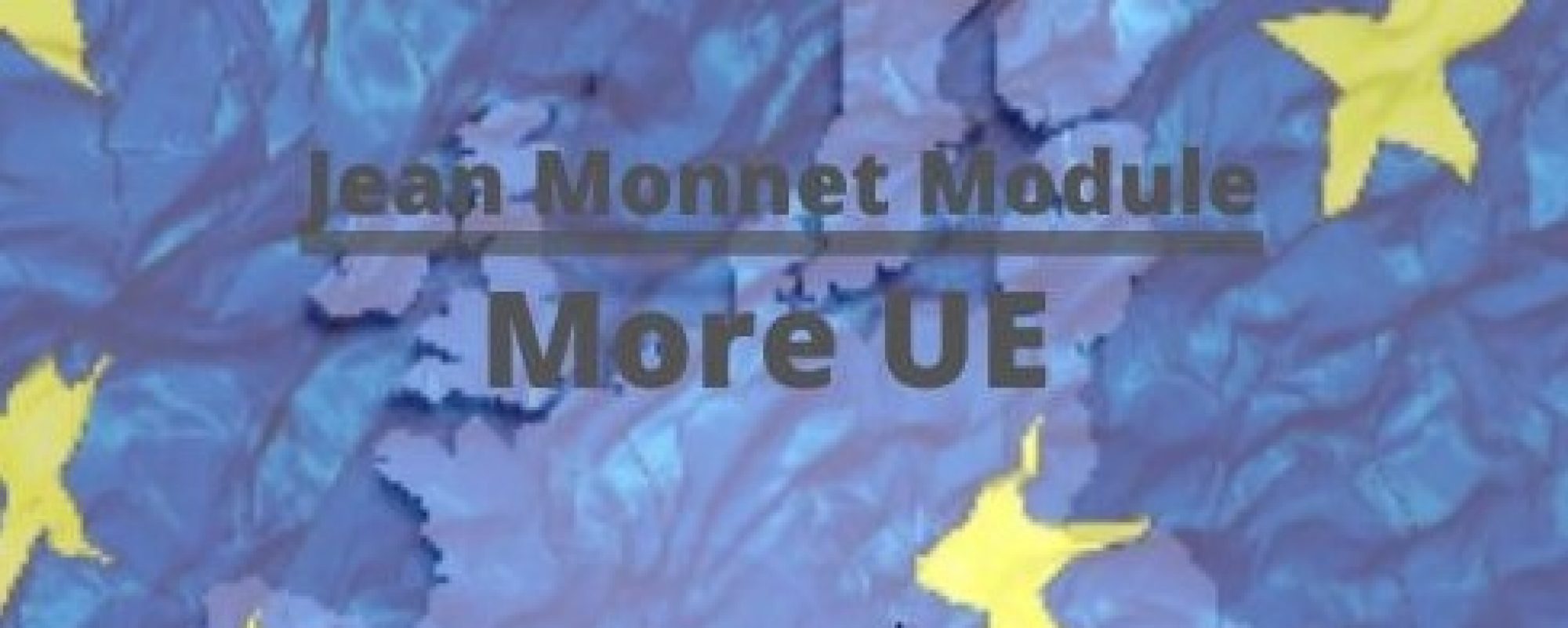Module Jean Monnet
«A More Social Europe: Citizenship, Asylum and Immigration» (MORE-UE)
Ref. 611319-EPP-1-2019-1-ESEPPJMO-MODULE
Coordinated by Prof. Dra. Ana Fernández Pérez
(Profesora Titular de Derecho internacional privado)
Immigration has become a social phenomenon that directly or indirectly affects the richest and most industrialized countries. From a general point of view, migratory flows affect the economy, politics and culture of recipient countries. In particular, the phenomenon of immigration is associated with other social problems related to human rights. In the face of the current refugee crisis that access Europe mainly through the so-called Western Balkans route, citizens wonder what the obligations of European states are. Along with this, the recent Brexit process will involve certain changes in the concept and implementation of European citizenship. Therefore, the EU is obliged to rethink its concept of citizenship, asylum and immigration and also how to properly manage migration. Those who suffer most from disagreements and political confrontations between individual states on these issues are citizens, refugees and immigrants themselves. This proposal seeks to address, from an interdisciplinary perspective, the phenomenon of contemporary international migration. The objective of the module is to provide basic tools to help understand and analyze the different aspects contained in European migratory movements: migration dynamics and sociodemographic characteristics, policies to regulate and control migration patterns, integration of immigrants, discrimination and exclusion of immigrants, etc. . .
The University of Alcalá (UAH) attracts a large number of students from all over the world, not only from other European countries. Thanks to the historical and cultural links, we annually receive more than 6,000 students from 130 countries to continue their studies temporarily at our University.
The Jean Monnet module «A More Social Europe: Citizenship, Asylum and Immigration» aims to offer a course on «Citizenship, asylum and immigration in the European Union», which will be taught progressively over the next three academic years (40 h each ) And in which an innovative methodology will be used. In addition, the Jean Monnet Module will organize events (two round tables and a congress) with political leaders, members of civil society and schools, prepare and launch educational resources, publish (working documents, articles, books) and disseminate information. to the general public (newspaper articles, blogs, radio and / or television interviews, etc.). The module will be taught by postdoctoral and high-level researchers of the Module team, as well as by international experts, who will also organize the different events.
The objective of the Module is to extend European studies to students of other grades: Arts and Humanities, Health Sciences, Engineering and Architecture and Social Sciences, where there is currently no academic offer for such studies. In this way, the Module will promote greater knowledge about European studies and on the subject.
Módulo Jean Monnet
«Una Europa más social: ciudadanía, asilo e inmigración» (MORE-UE)
Coordinado por Prof. Dra. Ana Fernández Pérez
(Profesora Titular de Derecho internacional privado)
La inmigración se ha convertido en un fenómeno social que afecta directa o indirectamente a los países más ricos y más industrializados. Desde un punto de vista general, los flujos migratorios afectan la economía, la política y la cultura de los países receptores. En particular, el fenómeno de la inmigración está asociado con otros problemas sociales relacionados con los derechos humanos. Ante la actual crisis de refugiados que acceden a Europa principalmente a través de la llamada ruta de los Balcanes Occidentales, los ciudadanos se preguntan cuáles son las obligaciones de los estados europeos. Junto con esto, el reciente proceso Brexit implicará ciertos cambios en el concepto y la implementación de la ciudadanía europea. Por lo tanto, la UE está obligada a repensar su concepto de ciudadanía, asilo e inmigración y también cómo gestionar adecuadamente la migración. Los que más sufren los desacuerdos y las confrontaciones políticas entre los estados individuales sobre estos temas son los propios ciudadanos, refugiados e inmigrantes. Esta propuesta busca abordar, desde una perspectiva interdisciplinaria, el fenómeno de la migración internacional contemporánea. El objetivo del módulo es proporcionar herramientas básicas para ayudar a comprender y analizar los diferentes aspectos contenidos en los movimientos migratorios europeos: dinámica migratoria y características sociodemográficas, políticas para regular y controlar los patrones migratorios, integración de inmigrantes, discriminación y exclusión de inmigrantes, etc. .
La Universidad de Alcalá (UAH) atrae a un gran número de estudiantes de todo el mundo, no solo de otros países europeos. Gracias a los vínculos históricos y culturales, recibimos anualmente a más de 6.000 estudiantes de 130 países para continuar sus estudios temporalmente en nuestra Universidad.
El módulo Jean Monnet «A More Social Europe: Citizenship, Asylum and Immigration» tiene como objetivo ofrecer un curso sobre «Ciudadanía, asilo e inmigración en la Unión Europea», que se impartirá progresivamente durante los próximos tres cursos académicos (40 h cada uno) y en la que se utilizará una metodología innovadora. Además, el Módulo Jean Monnet organizará eventos (dos mesas redondas y un congreso) con líderes políticos, miembros de la sociedad civil y las escuelas, preparará y lanzará recursos educativos, publicará (documentos de trabajo, artículos, libros) y difundirá información. al público en general (artículos periodísticos, blogs, entrevistas de radio y / o televisión, etc.). El módulo será impartido por investigadores postdoctorales y de alto nivel del equipo del Módulo, así como por expertos internacionales, que también organizarán los diferentes eventos.
El objetivo del Módulo es extender los estudios europeos a estudiantes de otros grados: Artes y Humanidades, Ciencias de la Salud, Ingeniería y Arquitectura y Ciencias Sociales, donde actualmente no existe una oferta académica para dichos estudios. De esta manera, el Módulo promoverá un mayor conocimiento sobre los estudios europeos y sobre el tema.


